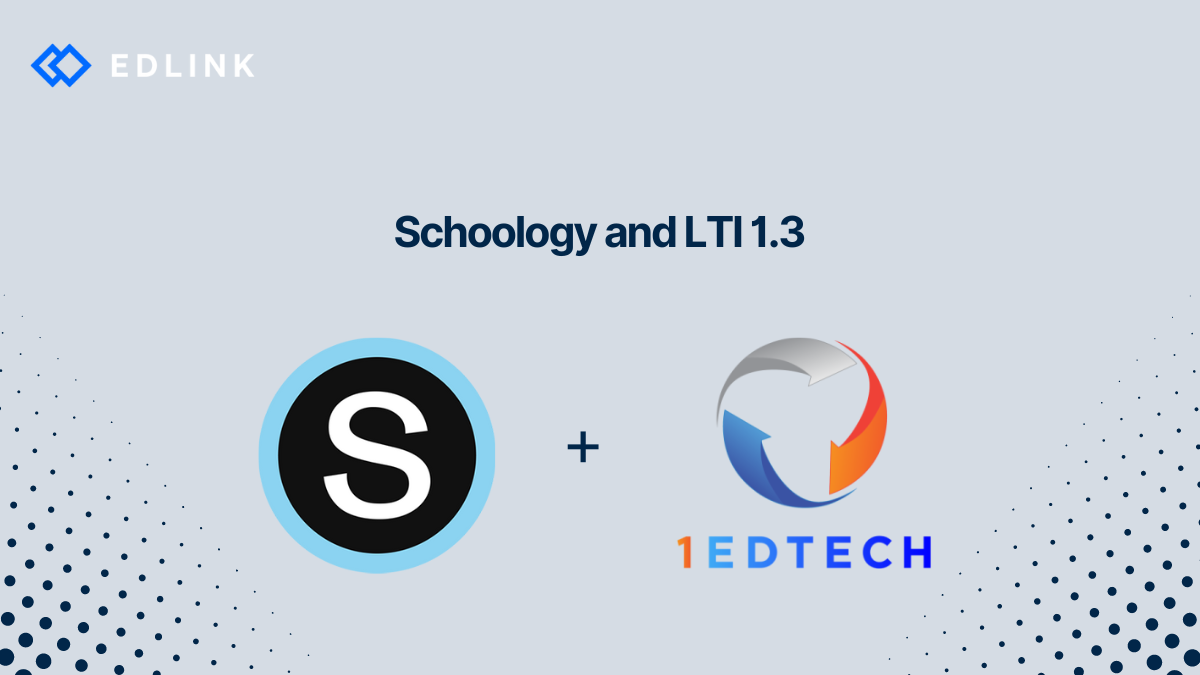Schoology released support for the latest version of LTI 1.3 and LTI Advantage from 1EdTech Consortium. Previously the LMS only supported LTI 1.1 (also known as LTI Launch). Even though LTI 1.1 is deprecated, just like any specification, Schoology can still support LTI 1.1. However, involvement and certification are no longer supported by 1EdTech, which might be a requirement for some learning institution RFPs.
What Does this Mean for Edtech Developers?
Developers can still build apps for Schoology that use the LTI 1.1 specification. But now, developers might have to “rebuild” their integrations to use the LTI 1.3 and/or LTI Advantage specifications based on their contracts, demand, or RFPs. Ultimately, 1Edtech deprecated all of their previous LTI versions and your customers (learning institutions) might ask for the “most recent” integration specification to stay updated and secure (even if your LTI 1.1 connection works and is secure).
What Are the Differences Between LTI Specifications?
Though there are more versions in LTI than just LTI 1.1, LTI 1.3, and LTI Advantage from 1EdTech, here’s a high-level summary of these 3 specifications:
- LTI 1.1 authenticates users, allowing users to access learning tools, using OAuth 1.0.
- LTI 1.3 authenticates users using OAuth2, and signs messages using JSON Web Tokens (JWTs) to pass data between the LMS and the external learning tool.
- LTI Advantage is a set of 3 services: Names and Role Provisioning Services, Assignment and Grade Services, and Deep Linking.
Learning Tools are the learning apps and platforms learning institutions use.
Should Developers Use LTI 1.3 or LTI Advantage?
1Edtech intends for edtech developers to use LTI 1.3 and LTI Advantage together. First, a developer must implement LTI 1.3 and then implement the services from LTI Advantage on top. This way, the learning app can implement the functionality it needs. Developers have the freedom to choose which service to implement first (if any) and choose the order of implementation. Implementing all 3 services with LTI 1.3 is called LTI Advantage Complete, though this “official title” comes from certification by 1EdTech.
Updated | 4.19.24
Learn More about LTI and Schoology
If you’re interested to learn more about LTI and Schoology here’re other articles we’ve written:
- How to Create a Schoology Integration
- What’s the Difference Between API and LTI Integration?
- Explain it Like I’m 5: LTI Advantage
- How to Implement Single Sign-On With Schoology
- The Challenges of Integrating With Schoology
Want to Learn More about Edlink?
If you're looking for a partner who can help guide you through developing LMS integrations (like these), then let’s introduce ourselves. We’re Edlink!

